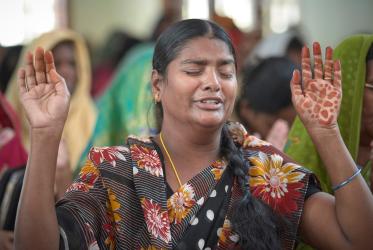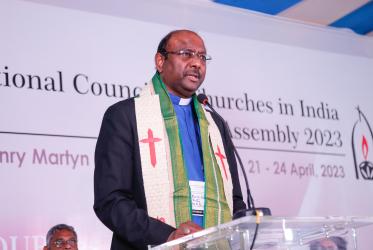International conference organized by the Church of South India in partnership with World Council of Churches and National Council of Churches in India
CSI Synod Centre on 25-26 October 2011
STATEMENT
Believing that the Earth and everything in it belongs to the Lord implies that all of creation lies at the heart of God. In these times of violent crisis of eco-systems we confess that all of creation is groaning for liberation and these cries are the loudest from forests and forest communities. As the participants of the international conference on Forests: Our Good Neighbour held at the CSI Synod Centre, Chennai from the 24th to the 26th of October 2011 affirm that eco-justice ministries forms an integral part of the mission of the church. We are called to witness in the context of deforestation, global warming, pollution, natural resource depletion; species extinctions and habitat destructions that are affecting the whole community of creation especially forest communities.
Forests are God’s agents in sustaining life on this earth, rapid deforestation and reforestation which does not respect bio-diversity is causing ecological catastrophe. The Goodness of God’s earth is threatened by the proliferation of nuclear reactors and the false propaganda that nuclear energy is clean and green. The promise of the fullness of life offered by Jesus is contradicted by the misguided notions of growth and progress manifested in big development projects. These threats are driven by the structural greed of a microscopic minority.
In such a time as this we actively seek to create more compassionate and sustainable economies that support the well-being of all God’s creation.
Therefore the participants of this International Conference on ‘Forest our Good Neighbour’
1. Affirm the need to continue to engage with the local churches and congregations as partners in the care for God’s Creation.
2. Resolve to stand in solidarity with those resisting the nuclear power plants in Kudankulam, Jaitapur and elsewhere and actively campaign against the notion that nuclear energy is clean and green energy.
3. Recognise our complicity in the ecological crisis and repent for our actions that result in denial of life and livelihood of Adivasis, Tribals and Dalits and others living in and on the periphery of the forests.
4. Reaffirm our commitment in the peoples’ struggle and movements involved in the preservation of biodiversities especially, forests.
5. Re-live the call to be committed towards climate justice and integrity of creation.
6. Renew the liturgical, ministerial, theological and spiritual life of the Churches so that they address the issues of deforestation and related ecological crises.
7. Invite the global community of churches to participate with us in our commitment to care for forests and all of creation.


